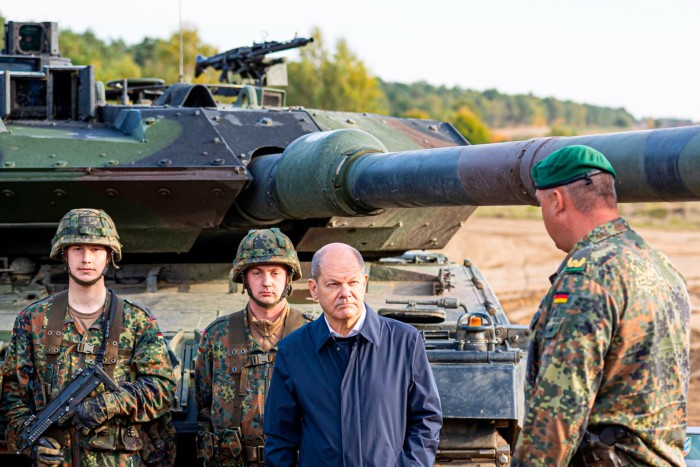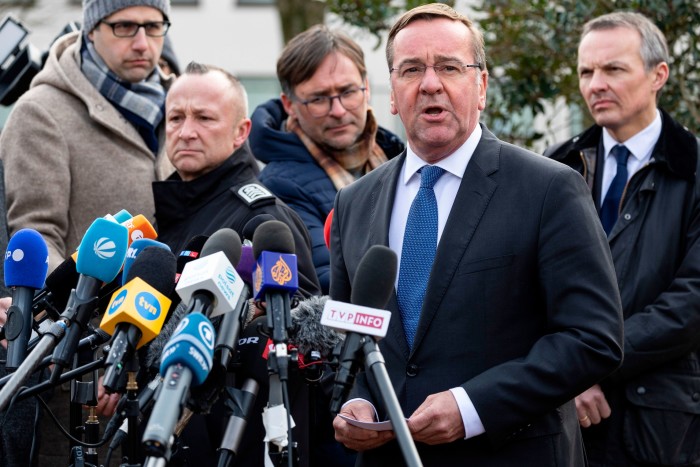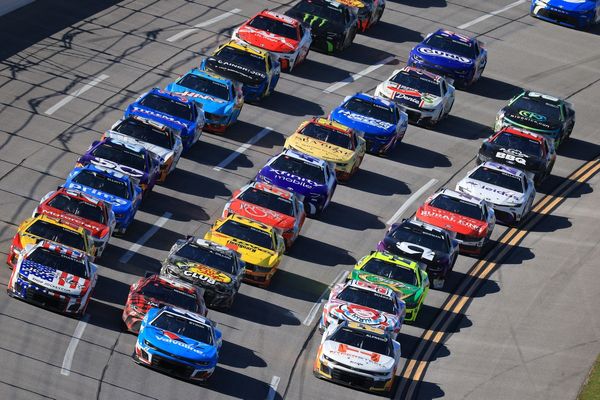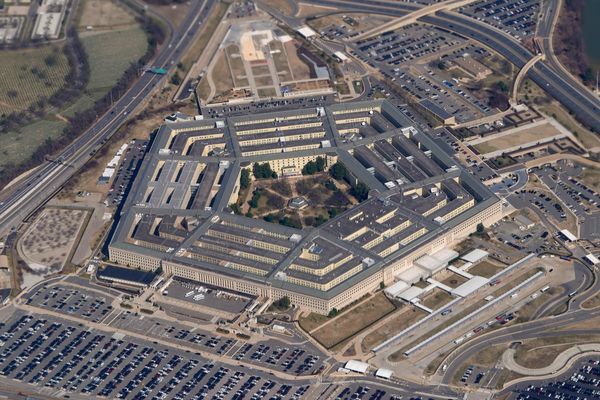“Free the Leopards now!” the crowd chanted outside Olaf Scholz’s office on Friday evening. It is a demand that is being made with increasing urgency across Europe, as pressure mounts on Germany to send its prized tanks to Ukraine.
So far, though, Scholz is resisting those calls. Hopes had been high that a decision to dispatch German-made Leopards to Kyiv might come on Friday, at a critical meeting of western defence chiefs. But they were dashed.
Asked on Sunday if he could assure Ukraine that it would get German tanks without further delay, Scholz dodged the question. “We will proceed in the future as we have done in the past — co-ordinating closely with our allies,” he said during a trip to Paris. “It’s a principle that has served us well so far.”
Officials in Ukraine, desperate for heavy armour to fend off an expected Russian offensive in the coming months that could prove decisive for the direction of the war, could barely conceal their fury.
“The reasons the Germans give are flimsy and unconvincing,” Andrii Melnyk, Ukraine’s deputy foreign minister and its former ambassador to Berlin, said. “This German angst, this absolutely irrational fear that delivering Leopard tanks would provoke Russia to escalate this war, is just ridiculous.”
His frustration is widely shared in Europe. Allies are becoming increasingly exasperated by Scholz’s poor communication and lack of coherence on the tanks issue, with concern growing in Berlin that the tug of war over Leopards is doing real harm to Germany’s standing in the world.
“The equivocation that we’re seeing from the German government is becoming a problem,” said Susi Dennison, senior fellow at the European Council on Foreign Relations. “It’s pushing Germany out of line with the centre of gravity in the EU.”
Confusion as to the German government’s position was compounded on Sunday evening when Annalena Baerbock, the Green foreign minister, told a French TV programme that Germany “would not stand in the way” if Poland were to send its Leopard tanks to Ukraine. She added Warsaw had not yet requested German permission to do so.
But Scholz’s role in the debate is key, and MPs from the opposition Christian Democrats (CDU) are increasingly critical of his stance.
“Germany has become a total basket case on the international stage,” said Johann Wadephul, the CDU’s foreign and defence spokesperson. “Whether out of obstinacy or cowardice, the chancellor is leaving Ukraine hanging. And . . . Germany is left looking increasingly lonely in Europe.”
Allies were baffled by the lack of a breakthrough at Ramstein, the US air base in western Germany where Friday’s meeting was held. Britain, Poland and several European governments had said in advance they were prepared to arm Kyiv with modern tanks, and the US had also supported the idea in principle. But the position of Germany, which makes the Leopards and whose permission is needed to send any of them to Ukraine, was key.
“People had thought the dam had broken, that [Scholz] was finally moving in the right direction,” said one western diplomat in Berlin. “Now they’re left scratching their heads, wondering what’s going on with this guy.”
Poland’s prime minister Mateusz Morawiecki said on Twitter on Sunday: “We will not stand by idly and watch Ukraine bleed to death. If we don’t get German agreement on the Leopards, we will build a ‘smaller coalition’ of countries ready to donate some of their modern tanks to a fighting Ukraine.”

For some Europeans, the disappointing outcome reinforced their doubts about Scholz. Timothy Garton-Ash, professor of European Studies at Oxford university, summed up the sense of annoyance by pointing out on Twitter the growth of a new word, “Scholzing” — defined as “communicating good intentions, only to use/find/invent any reason imaginable to delay these and/or prevent from happening”.
German officials bristle at suggestions that their country is halfhearted in its support for Ukraine. After the US it is one of the largest providers of military aid to Kyiv. It has sent advanced air-defence systems, anti-aircraft cannons and multiple-rocket launchers, and just a few weeks ago it said it would dispatch dozens of Marder infantry fighting vehicles.
But the Ukrainians insist it go further. They want Germany to provide its Leopard 2s and allow other governments to send theirs as part of an international tank coalition. For Ukraine, the attraction of the Leopard 2, one of the world’s best tanks, is that more than 2,000 of them are in service in Europe, meaning Ukraine would have a large pool to draw on.
“Only this strategic step [of sending Leopards] would allow the Ukrainian army to push out the Russian invaders in 2023 and free all the occupied territories,” Melnyk said.
However, many in Germany worry this would be a step too far. Some fear that any attempt by the Ukrainians to liberate territory occupied by Russia — particularly the Crimean peninsula — would increase the likelihood that Russia’s president Vladimir Putin would resort to nuclear weapons, or turn on Nato.
“We must always take into account what the escalation risk is,” Nils Schmid, foreign policy spokesperson for Scholz’s Social Democrats (SPD), told German radio on Saturday. A joint decision on tanks, involving all Germany’s allies, would, he said, reduce the risk of Russian escalation: “A decision by individual allies would leave them exposed.”
Meanwhile, Boris Pistorius, the newly appointed German defence minister, has insisted Scholz is not the only European leader to have misgivings. “The impression that occasionally arises that there’s a united coalition and Germany is standing in the way is wrong,” he said on Friday, adding that there were “many allies” who shared Berlin’s view of the tanks issue.
Still, even if Scholz were isolated on the issue, that would not necessarily prompt him to rethink his position. The chancellor has frequently made it clear he will not be pushed into hasty decisions by the Ukraine hawks, is determined to prevent Nato being dragged into the war, and feels his cautious approach better reflects the mood of the German public.

That is in part borne out by surveys of public opinion. A DeutschlandTrend poll last week showed 46 per cent of Germans are in favour of sending Leopards, but 43 per cent are against — with 11 per cent undecided.
Scholz’s doubts about sending tanks are also widely shared within the SPD, which has a long history of friendship with Russia. But his coalition partners, the Greens and liberal Free Democrats (FDP) see things decidedly differently.
One FDP politician in particular, the MP Agnes-Marie Strack-Zimmermann, head of the Bundestag defence committee, has never stinted on her criticism of Scholz’s hesitancy.
“History is watching us and Germany has unfortunately failed,” she told the public broadcaster ZDF after the Ramstein meeting. She expressed anger that Scholz had not at least allowed other countries to send their Leopard tanks to Ukraine, saying that would have been “the right signal”.
Coalition partners were also angry at the chancellery’s odd messaging in recent days. Multiple media last week reported that Scholz had said Germany would not send any tanks to Ukraine unless the Americans did so. Pistorius later denied Berlin had set such a condition.
“The communication is a catastrophe,” Strack-Zimmermann said. “If the chancellor doesn’t want to [send tanks], then he has to explain why not.”
Her interview prompted a furious response from a key Scholz ally that laid bare the depth of cabinet divisions on the issue. “Mrs Strack-Zimmermann and others are talking us into a military conflict,” Rolf Mützenich, head of the SPD parliamentary group, told the DPA news agency. “Hyper-ventilating and rituals of outrage have no place in policymaking when there’s a war raging in Europe.”
Dennison said such internecine tensions were enhancing the impression that there is a “lack of clear, principled leadership from Germany”. Arguments within the coalition were making the country “hard to read, hard to predict”.
Meanwhile, Germany’s allies watch from the sidelines with mounting disbelief. “The expectations are super high, the need for tanks is clear and obvious, partners are very much in favour as well,” said a minister from one of the Baltic states. “So it is very difficult to explain the thinking behind the decision not to send.”
Additional reporting by Richard Milne in Oslo and Christopher Miller in Kyiv







